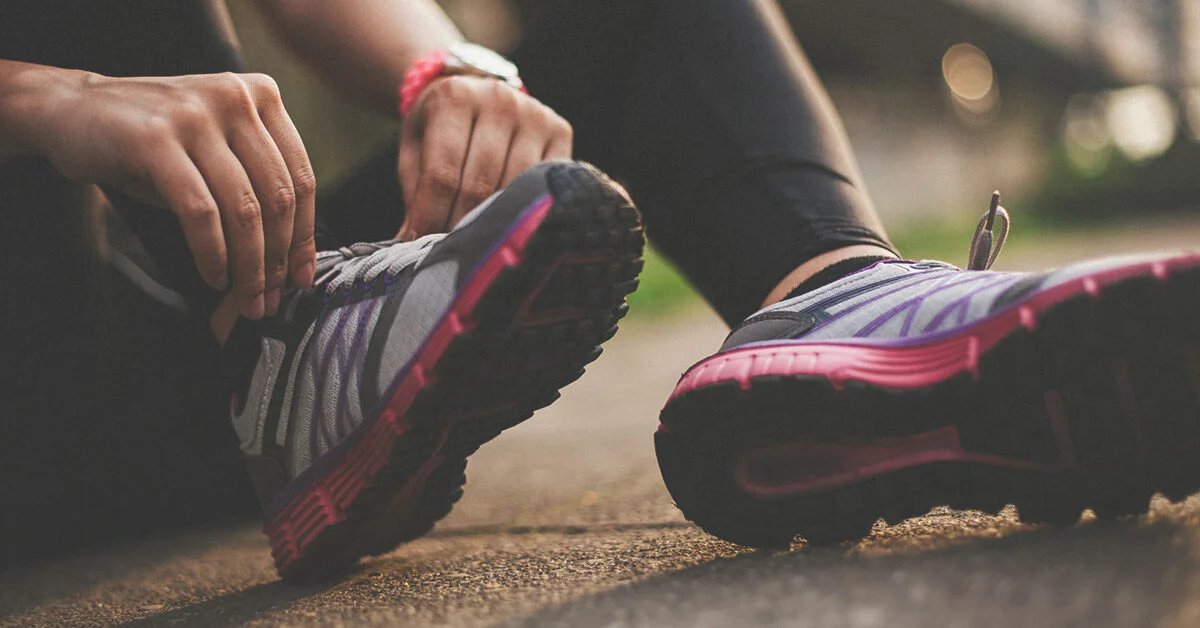If you suffer from plantar fasciitis, you know the chronic pain that can come with it. But you may not know that wearing running shoes for plantar fasciitis can help alleviate some of the symptoms and provide much-needed relief. In this blog post, we’ll explore how running shoes can help relieve plantar fasciitis pain and why they’re essential in managing your condition.
The Right Pair Of Shoes Can Make All The Difference
The right pair of shoes can be essential for plantar fasciitis patients. Finding a team that provides ample arch support and cushioning is essential to reduce pain and prevent further injury.
A shoe with good arch support will help keep the foot properly aligned, reducing the strain on the plantar fascia and decreasing the pain you may experience. Cushioned shoes are also great for absorbing shock and reducing pain. They also provide additional comfort, allowing your feet to move freely without putting too much pressure on the plantar fascia.
It’s important to note that wearing the wrong type of shoes could worsen the pain associated with plantar fasciitis. Shoes without arch support or cushioning can strain the plantar fascia and increase discomfort. For this reason, it’s important to find shoes specifically designed for those suffering from plantar fasciitis.
If you’re experiencing pain associated with plantar fasciitis, it’s best to talk to a doctor or podiatrist before making any changes to your footwear. They can help you determine what kind of shoes may relieve your pain and prevent future injury.
The right pair of shoes can make all the difference when dealing with plantar fasciitis. Shoes with good arch support and cushioning can help relieve pain, while the wrong type of shoes could make things worse. If you’re suffering from plantar fasciitis, talk to a doctor or podiatrist about which type of shoes might be best for your condition.
 Shoes With Good Arch Support Can Help Prevent Plantar Fasciitis
Shoes With Good Arch Support Can Help Prevent Plantar Fasciitis
When it comes to preventing and treating plantar fasciitis, a good pair of shoes is essential. Shoes that offer arch support help reduce the strain on the plantar fascia, preventing it from becoming inflamed or injured. Finding shoes that provide the proper arch support for your feet is essential. Too tight shoes can be just as damaging as shoes with inadequate support. Look for shoes with a contoured footbed with plenty of cushioning, especially in the arch.
Additionally, opt for shoes with an elevated heel to help absorb shock and reduce strain on the feet. A midsole drop of around 10-12mm (or 0.5 inches) will allow maximum contact between the foot and the ground, providing stability without compromising comfort. To further enhance stability, choose running shoes with a broader toe box so your toes aren’t constricted during movement.
Lastly, look for running shoes designed specifically for those who suffer from plantar fasciitis; they’re often outfitted with additional arch support and other features designed to address pain associated with this condition. Considering all of these factors can help you find a shoe that will alleviate existing pain while protecting against further discomfort down the line.
Cushioned Running Shoes For Plantar Fasciitis Can Help Absorb Shock And Reduce Pain
One of the best ways to reduce pain from plantar fasciitis is to wear shoes with good cushioning. Cushioned running shoes for plantar fasciitis help absorb each step’s shock, reducing the strain on the plantar fascia. Additionally, cushioned shoes provide additional arch support, which can help keep your foot in the correct position. It helps to reduce further strain on the plantar fascia and prevents further injury.
When shopping for shoes for plantar fasciitis, looking for those with plenty of cushioning is essential. Shoes made with unique materials such as air or gel cushioning are great for absorbing shock and reducing pain. It’s also necessary to look for lightweight and flexible shoes, as this will make them more comfortable to wear. Finally, getting shoes with good arch support is also required, as this can help keep the foot in the correct position and reduce strain on the plantar fascia.
Wearing The Wrong Shoes Can Make Pain Worse
If you have plantar fasciitis, wearing the right type of shoes is important. The wrong shoes can worsen your pain and make it harder to recover.
High heels and tight-fitting shoes can strain the plantar fascia, aggravating the injury. Shoes that lack arch support, cushioning, and a wide toe box can contribute to further inflammation and pain in the foot.
It’s also important to keep an eye on the wear and tear of your shoes. If your shoes are worn out, the cushioning may be compromised and could exacerbate your plantar fasciitis symptoms.
If you’re unsure which shoes will work best for your foot condition, consulting with a podiatrist or physician is always best. They can advise which types of shoes are best for relieving pain and minimizing the risk of injury. One option is to invest in running shoes designed specifically for running.
These specialized shoes typically feature increased stability and additional cushioning, which help to protect the feet from impact during exercise. Additionally, running shoes often have a reinforced sole that helps protect against excessive pronation (foot rolling inward). This feature helps reduce stress on the plantar fascia ligament, reducing the likelihood of inflammation and pain. Wearing running shoes when exercising can help alleviate some of the discomfort associated with plantar fasciitis.
Aside from providing comfort, stability and protection during physical activities, running shoes can help alleviate some of the discomfort associated with plantar fasciitis. By wearing supportive running shoes designed to reduce stress on the feet and ankles, people with plantar fasciitis may experience increased flexibility, increased range of motion, and decreased pain and inflammation. Additionally, running shoes can help improve posture while walking and running, improving balance and overall body mechanics.
Talk To A Doctor Or Podiatrist If You’re Experiencing Pain
If you are experiencing ongoing pain associated with plantar fasciitis, speaking to a doctor or podiatrist is essential. Your doctor can help diagnose the issue and recommend a course of treatment. It may include stretching exercises, physical therapy, special orthotic insoles, or medications.
Additionally, your doctor may suggest different types of shoes for a more supportive wear. Specialty running shoes with increased arch support, cushioning, and heel stability can help reduce pain and improve recovery time. Researchers found that those who wore well-fitting shoes designed for running had significantly less foot pain and improved symptoms than those wearing casual shoes.
There are many styles of running shoes specifically designed for plantar fasciitis—look for footwear with extra cushioning in the midsole, gel inserts at the heels, stiffer midsoles, deep flex grooves at the toes, and straps at the ankles. When shopping for shoes to help alleviate pain from plantar fasciitis, it’s best to try them on in person to get an accurate feel for how they fit your feet and whether they provide the right level of comfort and support. Be sure to try on multiple pairs before purchasing—what works best for someone else might not be your best choice. Above all else, ensure the running shoes fit correctly and give you adequate space in the toe box to avoid cramping your toes.
Conclusion
Plantar fasciitis is a severe condition that can affect anyone, regardless of age or activity level. The right pair of running shoes can help to relieve the pain and pressure associated with plantar fasciitis. Shoes that offer good arch support, cushioning, and a snug fit are essential for those suffering from this condition. If you are experiencing pain, consult your doctor or podiatrist to determine the best treatment plan. By taking the proper steps to find the right shoe for your foot type, you can help reduce or even eliminate the pain caused by plantar fasciitis.
| Other Good Articles to Read |
| Cme Blog Spot |
| Garcias Blogs |
| Yyc Blogs |
| Guiade Blogs |
| Blogs-Hunt |
| Impact-Blog |
| Smarty Blogs |
| Ed Blog |
| Mo Blogs |
| Blogs Em |
| Blog St |


